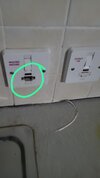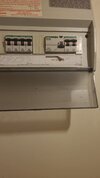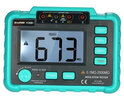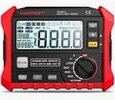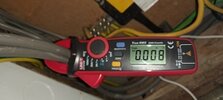Hi guys
Wonder if someone can help
The RCCB is not turning on. The kitchen sockets are not working.
The washing machine fuse switch sparks when you turn it on and smells.
Moreover the consumer unit made sizzling noise when trying to turn it on day later.
I have changed the fuse in the washing machine machine fuse box. Same situation
I have test instruments etc if tests need doing ?
What can be it be and what shall I test for ?
Also please note the fridge socket is the only socket working in the kitchen so I assume it's part of another circuit.
Wonder if someone can help
The RCCB is not turning on. The kitchen sockets are not working.
The washing machine fuse switch sparks when you turn it on and smells.
Moreover the consumer unit made sizzling noise when trying to turn it on day later.
I have changed the fuse in the washing machine machine fuse box. Same situation
I have test instruments etc if tests need doing ?
What can be it be and what shall I test for ?
Also please note the fridge socket is the only socket working in the kitchen so I assume it's part of another circuit.


